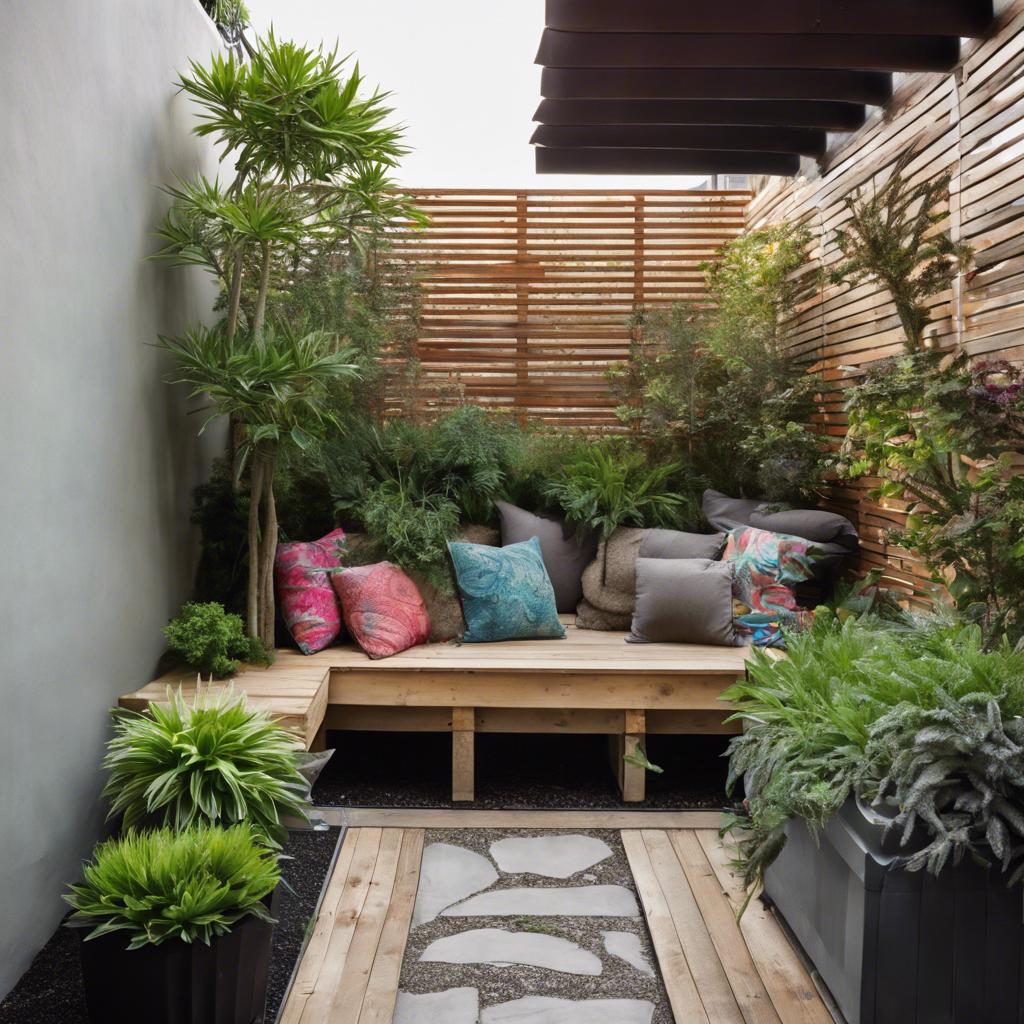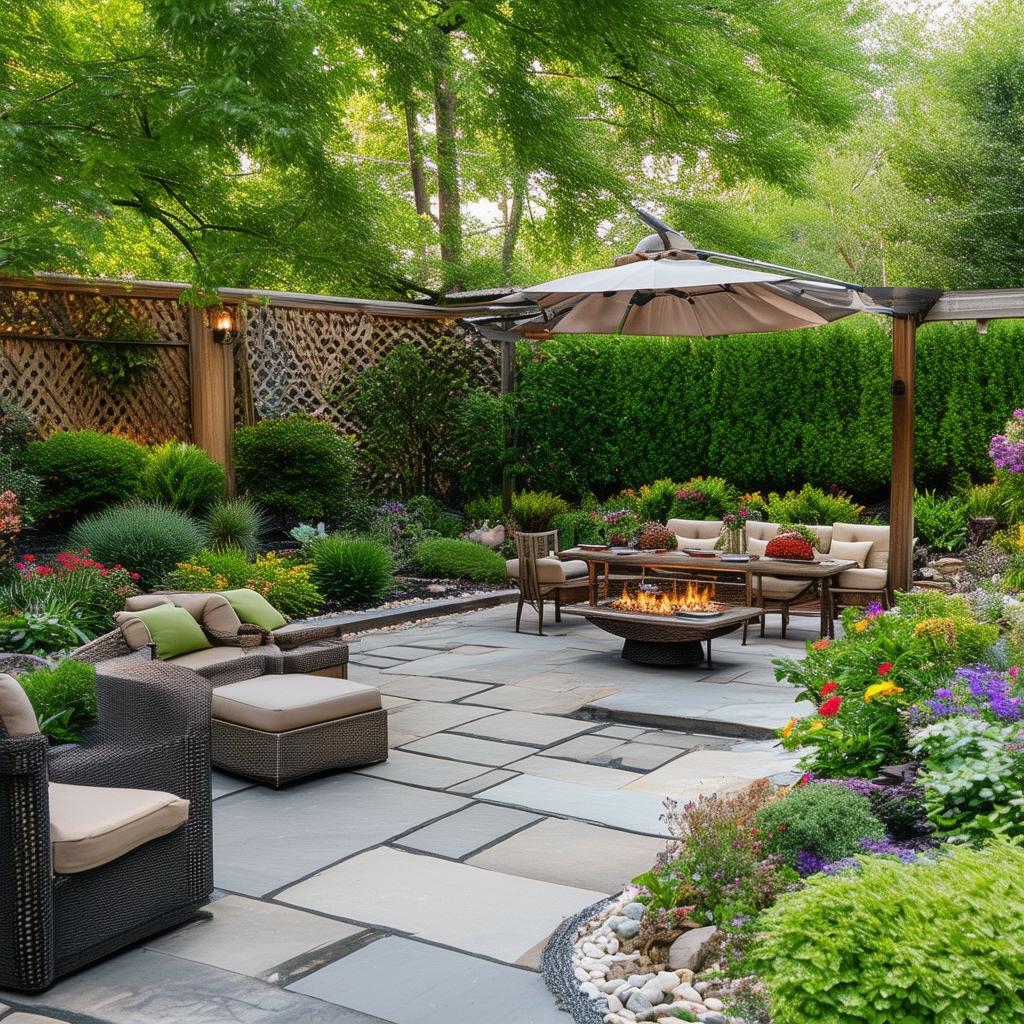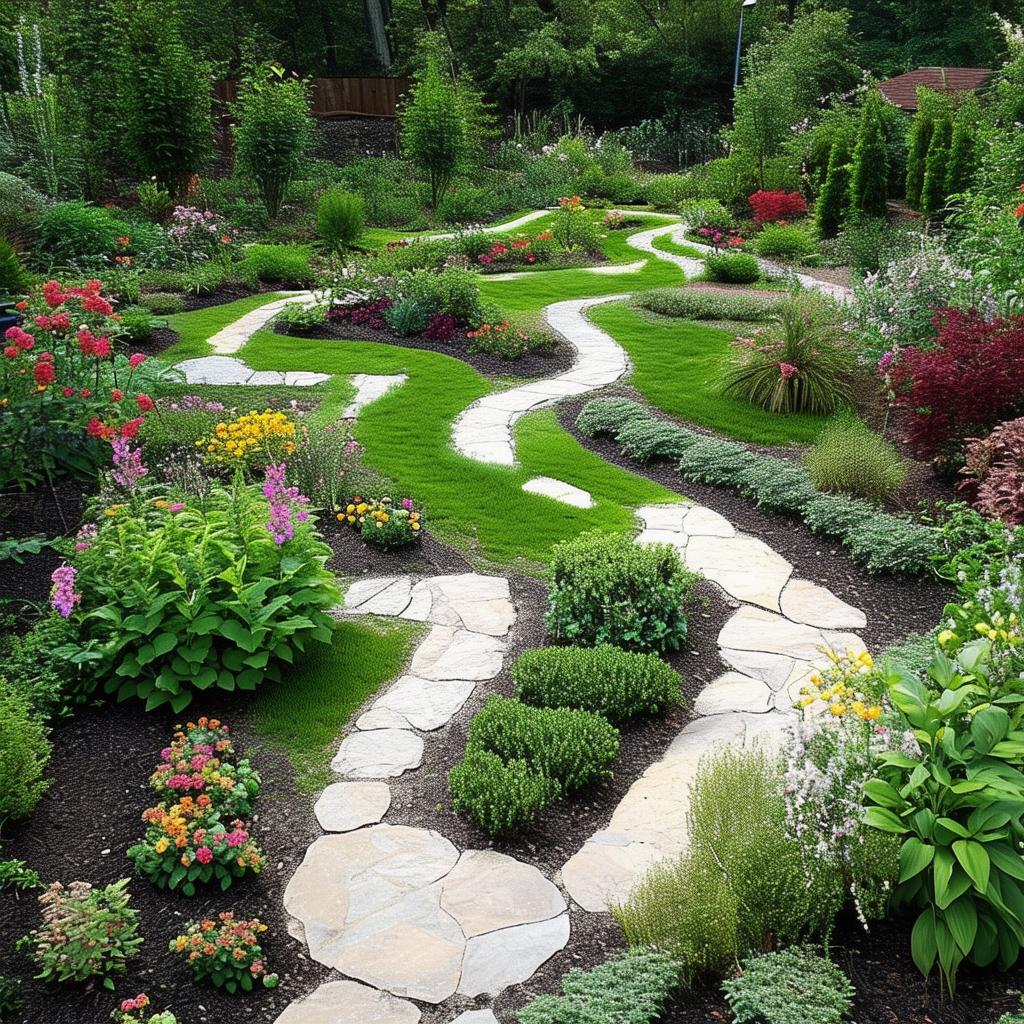In a world where space is at a premium and hectic schedules dominate our lives, creating a small oasis of tranquility at home can provide a much-needed escape. Enter the world of Tiny Oasis: Crafting the Perfect Small Garden Design, where creativity and ingenuity come together to transform even the tiniest of outdoor spaces into a lush and inviting sanctuary. Join us on a journey to discover how to maximize your small garden design potential and unlock the beauty of nature right at your doorstep.
Table of Contents
- Creating a Lush Paradise in a Small Space
- Selecting the Right Plants for a Tiny Oasis
- Incorporating Water Features for Tranquility
- Maximizing Vertical Space with Climbing Plants
- Utilizing Containers for Versatility
- Designing a Cozy Seating Area for Relaxation
- Adding Lighting for Ambiance and Functionality
- Implementing a Sound Element for Serenity
- Maintaining Your Small Garden with Ease
- Showcasing Personal Touches for a Unique Design
- Q&A
Creating a Lush Paradise in a Small Space
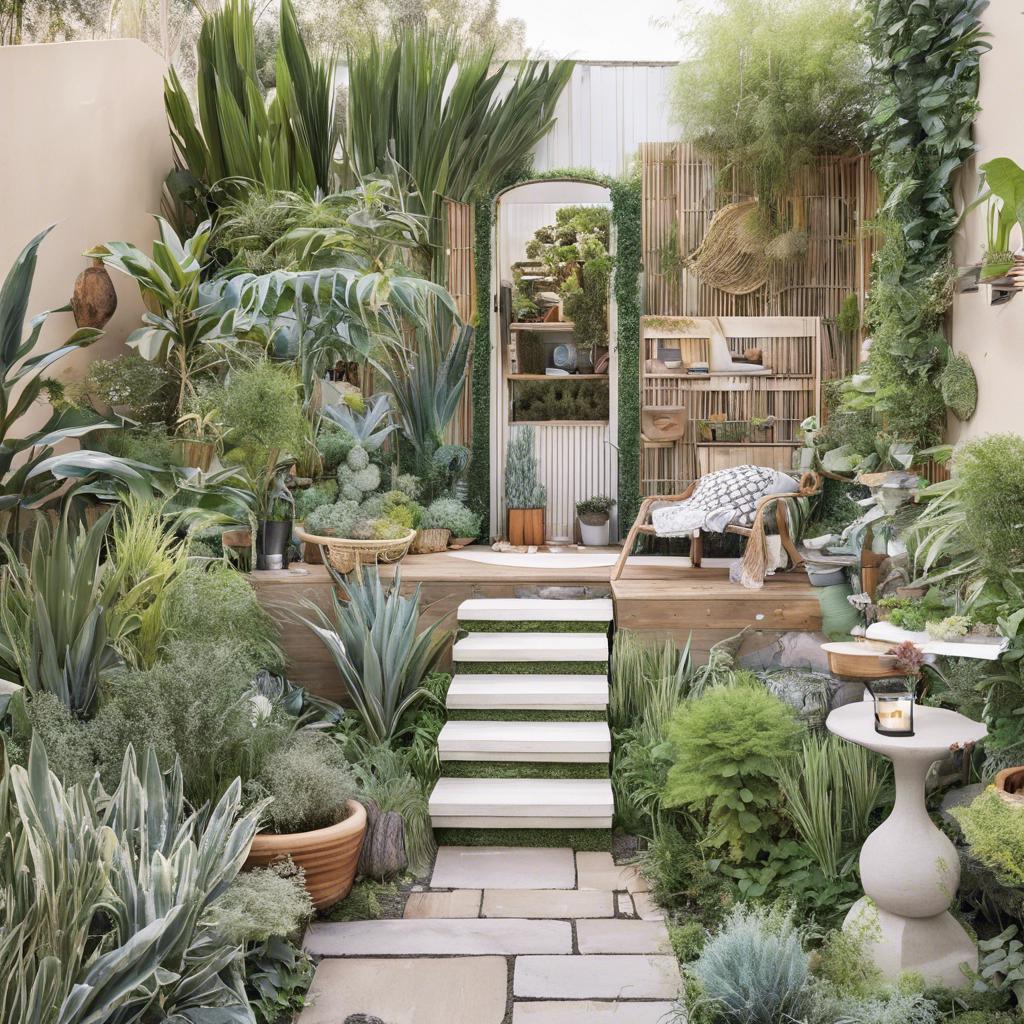
When it comes to designing a small garden, the key is to maximize every inch of space. One way to achieve this is by using vertical gardening techniques. Consider hanging baskets, wall-mounted planters, or trellises to add greenery without taking up precious ground space. This not only adds visual interest but also creates a lush oasis in an unexpected place.
Another trick for creating a small garden paradise is to focus on plant selection. Opt for plants that are compact and have a long blooming season, such as lavender, succulents, or dwarf shrubs. Mix different textures and heights to add depth to your garden design. Don’t forget to incorporate fragrant herbs like rosemary or mint for a sensory experience.
Lastly, don’t underestimate the power of lighting in transforming your tiny oasis. String lights, lanterns, or solar-powered stakes can illuminate your garden at night, creating a magical ambiance. Consider adding a small seating area or a water feature to make your space feel like a retreat from the hustle and bustle of everyday life.
Selecting the Right Plants for a Tiny Oasis
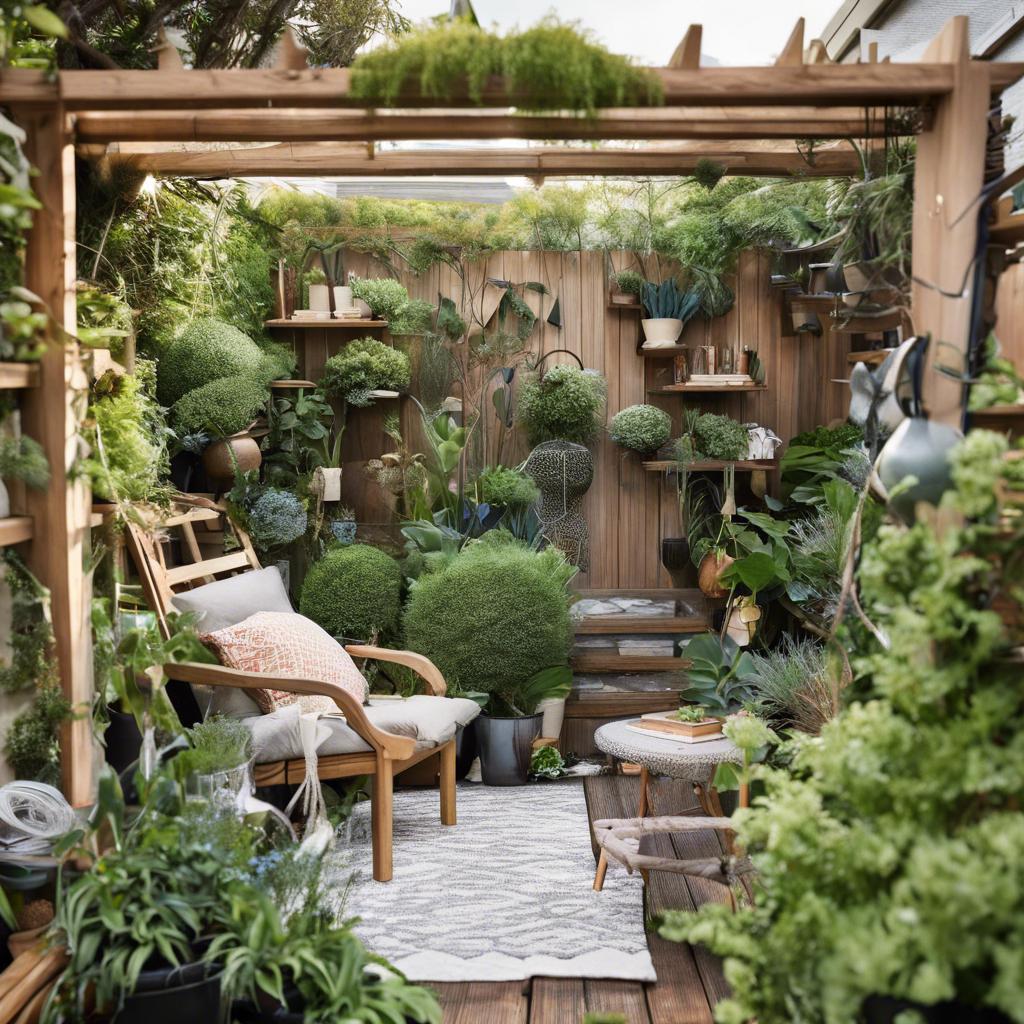
Creating a tiny oasis in your space is all about selecting the right plants that will thrive in a small garden design. When choosing plants for your tiny oasis, consider the following factors:
-
- Size: Opt for plants that are compact and won’t overcrowd your small space.
-
- Light: Determine the amount of sunlight your garden receives and choose plants that are suitable for that light level.
-
- Water: Select plants that have similar water requirements to make maintenance easier.
Some great plant options for a tiny oasis include succulents, dwarf shrubs, herbs, and ferns. These plants are low-maintenance and perfect for small garden designs. Mix and match different varieties to create texture and interest in your tiny oasis.
| Plant | Light Requirements | Watering Needs |
|---|---|---|
| Succulents | Full sun | Low |
| Dwarf Shrubs | Partial shade | Moderate |
| Herbs | Full sun | Moderate |
Incorporating Water Features for Tranquility
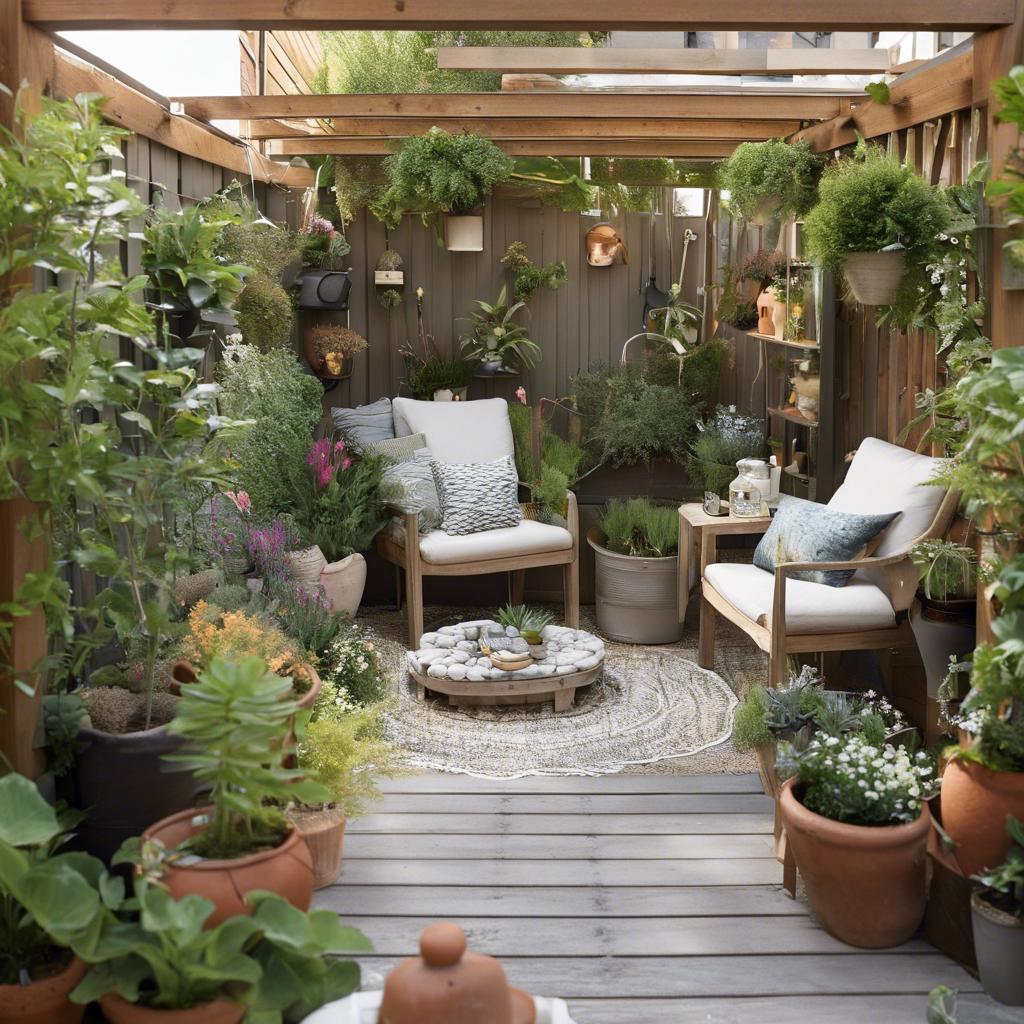
Imagine stepping into your own tiny oasis, a serene space designed for ultimate peace and tranquility. Incorporating water features into your small garden design can elevate the ambiance and create a calming atmosphere that you can escape to anytime you need a moment of relaxation.
Whether you opt for a small bubbling fountain or a tranquil pond, water features have the power to transform your outdoor space into a tranquil retreat. The gentle sound of flowing water can drown out the noise of the city, providing a sense of calm and relaxation. Plus, the visual appeal of water in motion can add a dynamic element to your garden design.
To make the most of your small garden space, consider incorporating water features that serve multiple purposes. For example, a small fountain can not only provide a soothing sound but also attract birds and wildlife to your garden. Additionally, strategically placing water features near seating areas can create a peaceful ambiance where you can unwind and connect with nature. Embrace the potential of water features to craft the perfect tiny oasis in your own backyard.
Maximizing Vertical Space with Climbing Plants
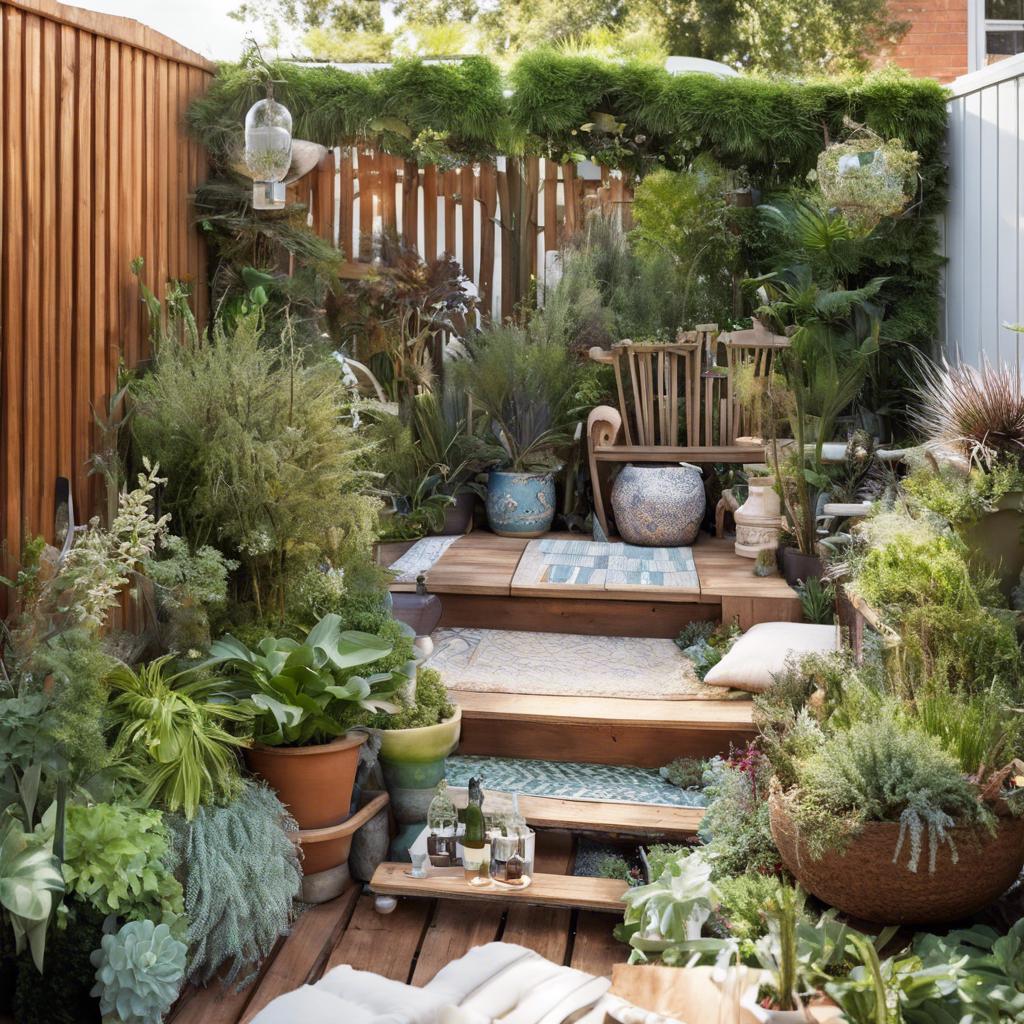
One of the best ways to maximize vertical space in a small garden design is by incorporating climbing plants. These green vines not only add a beautiful aesthetic to your outdoor space but also help to create a sense of depth and dimension. By training climbing plants to grow upward, you can make use of every inch of your garden, even in the smallest of spaces.
Key Tips for :
-
- Choose the right type of climbing plant for your space, considering factors such as light exposure and climate.
-
- Utilize trellises, arbors, and other structures to support the growth of climbing plants.
-
- Regularly prune and train your climbing plants to encourage upward growth and prevent overcrowding.
Incorporating climbing plants into your small garden design not only adds vertical interest but also creates a sense of tranquility and relaxation. Imagine stepping into your own tiny oasis, surrounded by lush greenery and the soothing sounds of nature. With a bit of creativity and some strategic planning, you can transform even the smallest of outdoor spaces into a peaceful retreat.
Utilizing Containers for Versatility
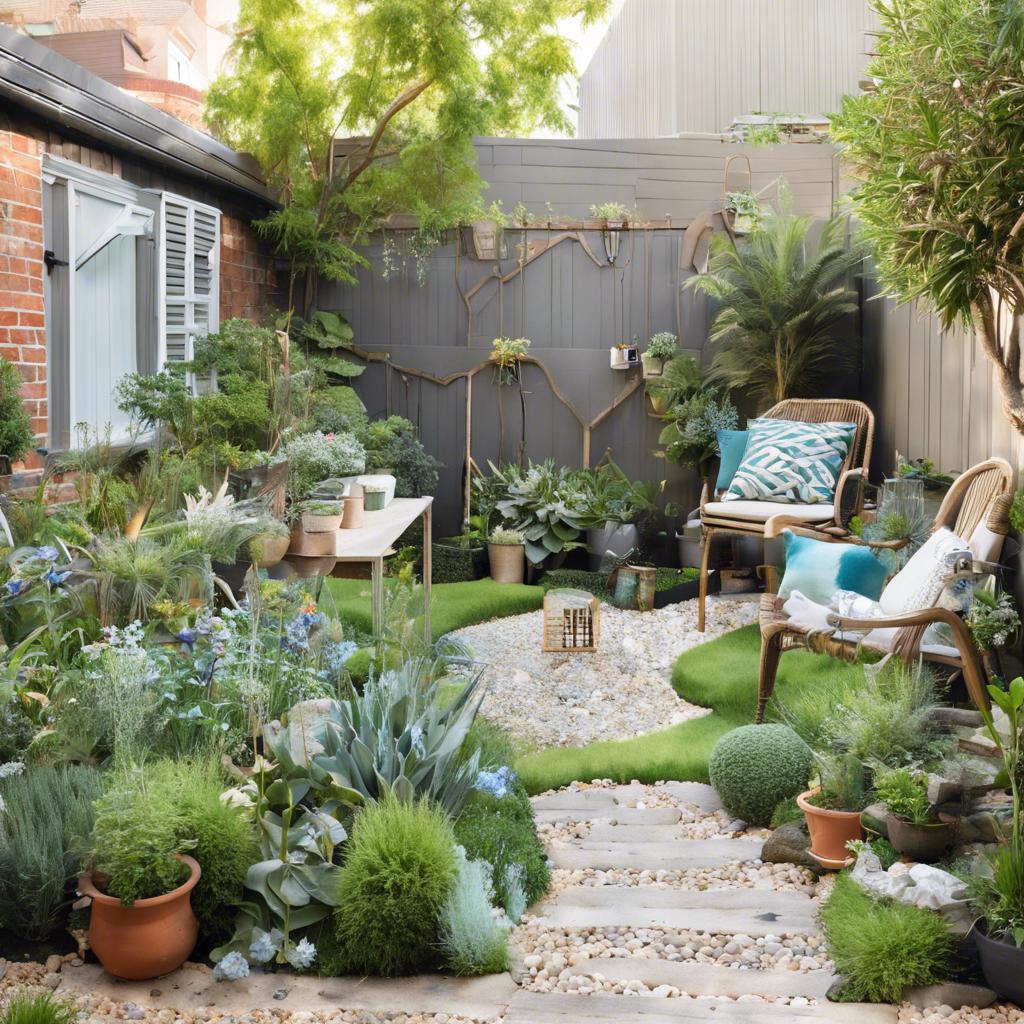
When it comes to creating a small garden design, utilizing containers can be a game-changer. Not only do containers provide versatility, but they also allow for easy rearrangement, making it simple to switch up your garden’s layout whenever inspiration strikes. Whether you have limited space or simply want to add pops of color throughout your outdoor area, containers offer endless possibilities for crafting your tiny oasis.
One of the key benefits of using containers in your small garden design is the ability to mix and match different plants to create a harmonious and visually appealing display. From vibrant flowers to lush greenery, the options are endless. Consider incorporating a variety of textures and heights to add depth and interest to your container arrangements. Don’t be afraid to experiment with different combinations to find what works best for your space.
Another advantage of incorporating containers into your small garden design is the ability to easily move them around to optimize sunlight exposure and airflow. This flexibility allows you to cater to the specific needs of each plant, ensuring they thrive in their environment. Additionally, containers can be placed strategically to create focal points or define different areas within your garden, adding structure and cohesion to the overall design.
Designing a Cozy Seating Area for Relaxation
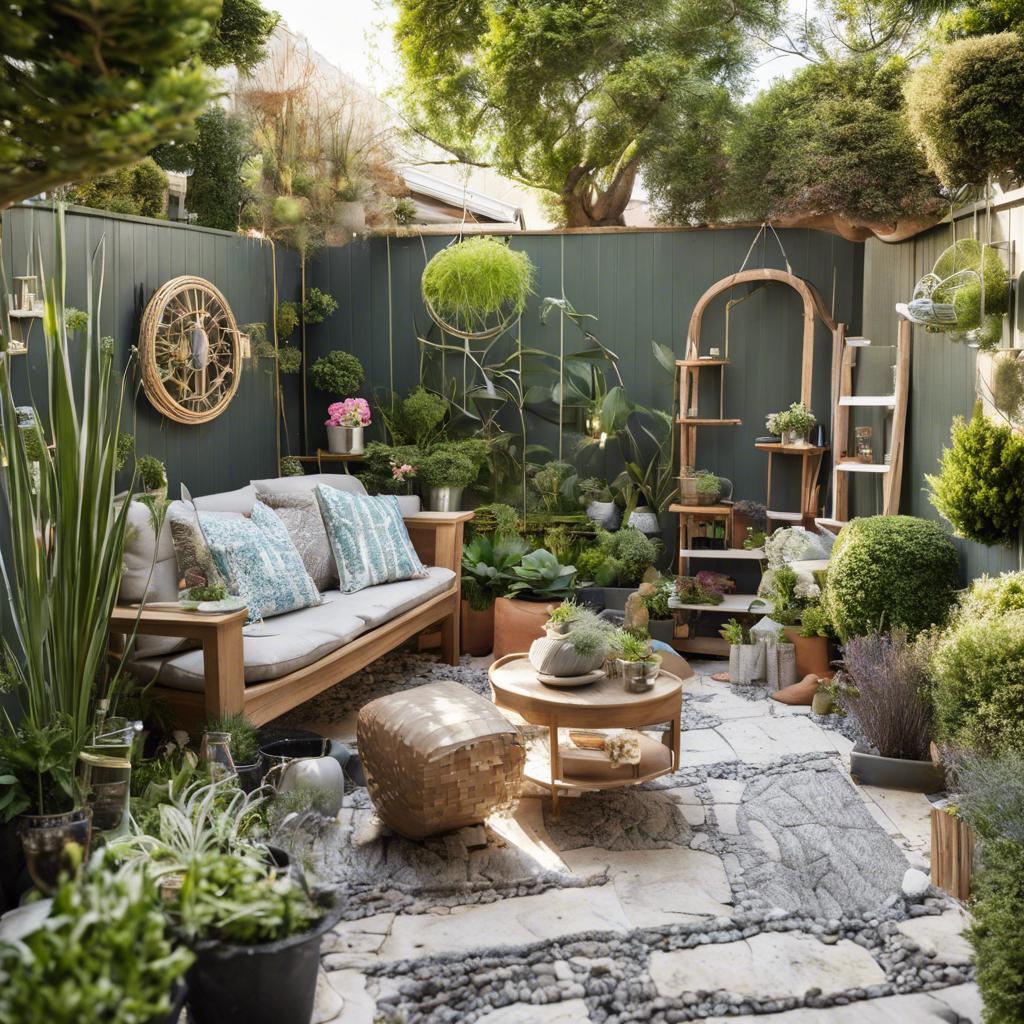
One key element to creating a cozy seating area for relaxation is to focus on incorporating comfortable and inviting seating options. Consider adding plush cushions and throw pillows to your chairs or benches to encourage guests to sit back and unwind. You can also mix and match different seating styles to create a dynamic and interesting space for lounging.
Another important aspect of designing a cozy seating area is to incorporate natural elements to bring a sense of serenity to the space. Consider adding potted plants, a small garden, or even a water feature to create a tranquil oasis in your backyard. These elements not only add visual interest but also help to create a calming atmosphere for relaxation.
To enhance the cozy atmosphere of your seating area, consider adding ambient lighting such as string lights, lanterns, or candles. Soft lighting can help to create a warm and inviting space for relaxation, especially in the evenings. You can also add a small fire pit or outdoor heater for extra warmth on chilly nights, allowing you to enjoy your cozy seating area all year round.
Adding Lighting for Ambiance and Functionality
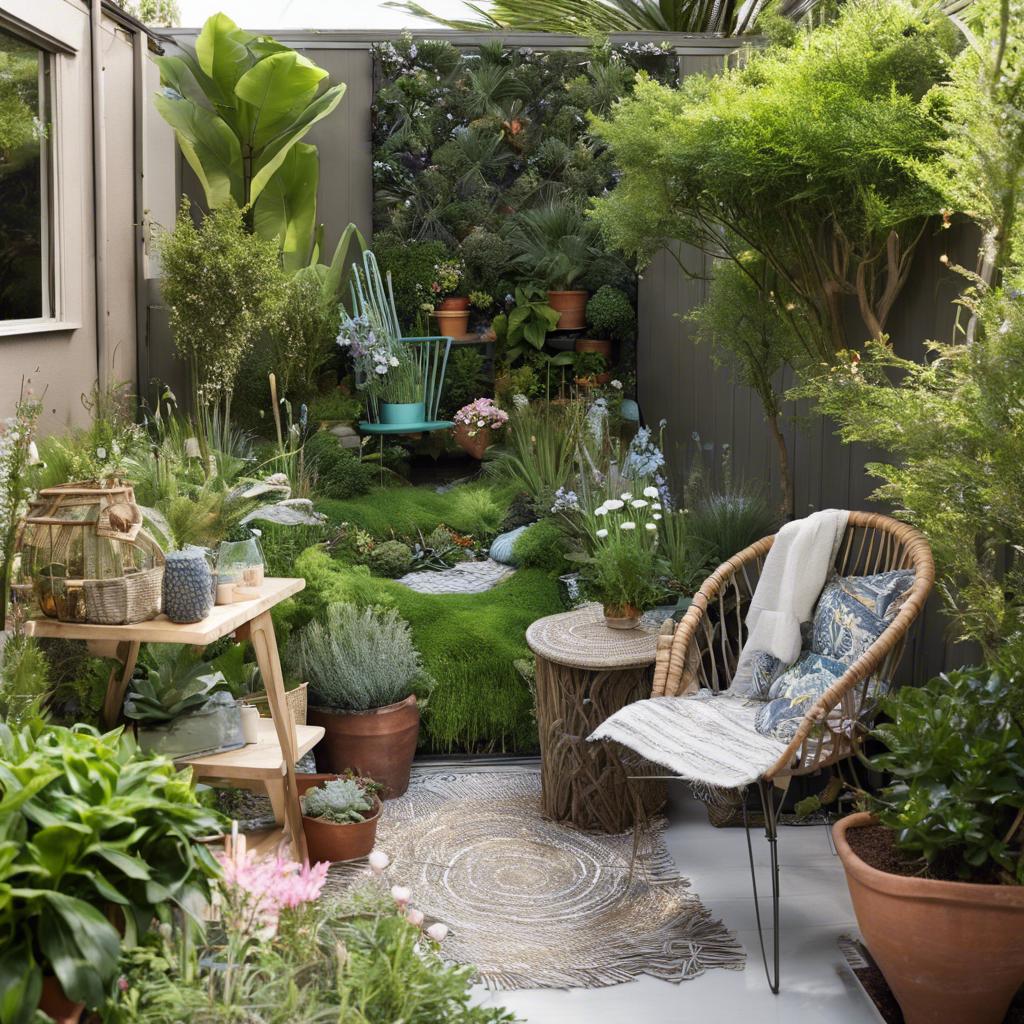
Adding lighting to your small garden can transform it into a magical oasis, providing both ambiance and functionality. By strategically placing different types of lights throughout your garden, you can create a cozy atmosphere for relaxing evenings outdoors. Consider incorporating fairy lights, lanterns, and solar-powered pathway lights to illuminate pathways and highlight key features of your garden.
In addition to enhancing the ambiance of your garden, lighting can also serve a practical purpose by increasing visibility and safety. Pathway lights can help guide you and your guests through the garden at night, preventing any trips or falls. Wall-mounted lights can also add an extra layer of security by illuminating dark corners and deterring potential intruders. By blending both aesthetic and functional lighting elements, you can create a truly enchanting space that is both beautiful and safe.
To maximize the impact of your garden lighting, consider using a combination of warm and cool-toned lights to create depth and contrast. Soft, warm lights can create a cozy and inviting atmosphere, while cool-toned lights can add a modern and sophisticated touch. Experiment with different lighting styles, such as uplighting, spotlighting, and string lights, to showcase your plants and create visual interest. Remember, the key is to strike a balance between functionality and aesthetics to craft the perfect small garden design.
Implementing a Sound Element for Serenity
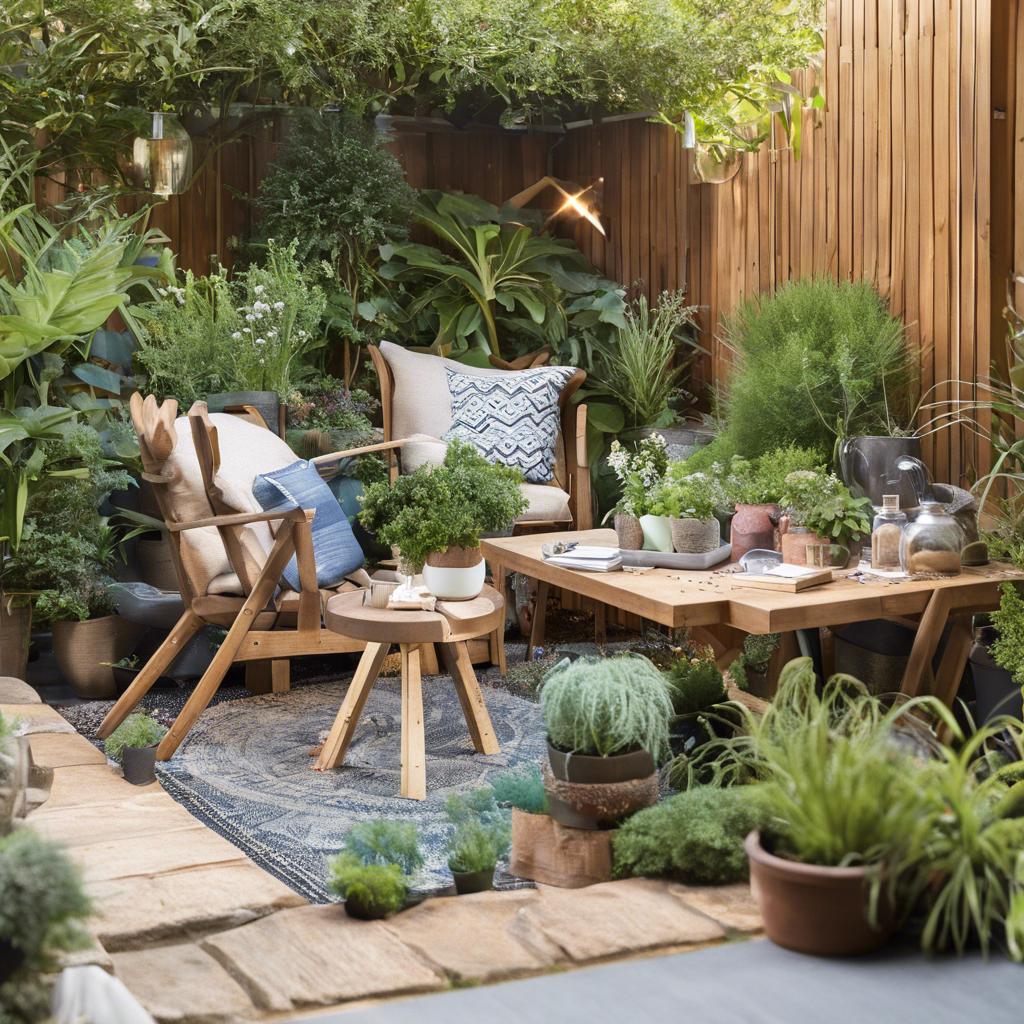
One key element to consider when designing a small garden is the inclusion of a sound element for serenity. By incorporating the soothing sounds of a gentle fountain or wind chimes, you can create a peaceful ambiance that will help you relax and unwind after a long day. Not only does this add a touch of tranquility to your outdoor space, but it also helps drown out any surrounding noise, allowing you to fully immerse yourself in the beauty of your tiny oasis.
When selecting a sound element for your small garden design, consider the size of your space and the overall aesthetic you are trying to achieve. A tabletop fountain or hanging wind chimes are great options for smaller gardens, as they can easily be integrated into your existing layout without overwhelming the space. Additionally, using natural materials such as stone or bamboo will help create a cohesive look that blends seamlessly with your plants and decor.
Remember to place your sound element strategically within your small garden to maximize its impact. Positioning a fountain near a seating area or entrance can create a focal point that draws the eye and invites relaxation. Similarly, hanging wind chimes from a tree or pergola adds a whimsical touch that enhances the overall atmosphere of your tiny oasis. By , you can elevate the design of your small garden and create a peaceful retreat that you’ll love spending time in.
Maintaining Your Small Garden with Ease
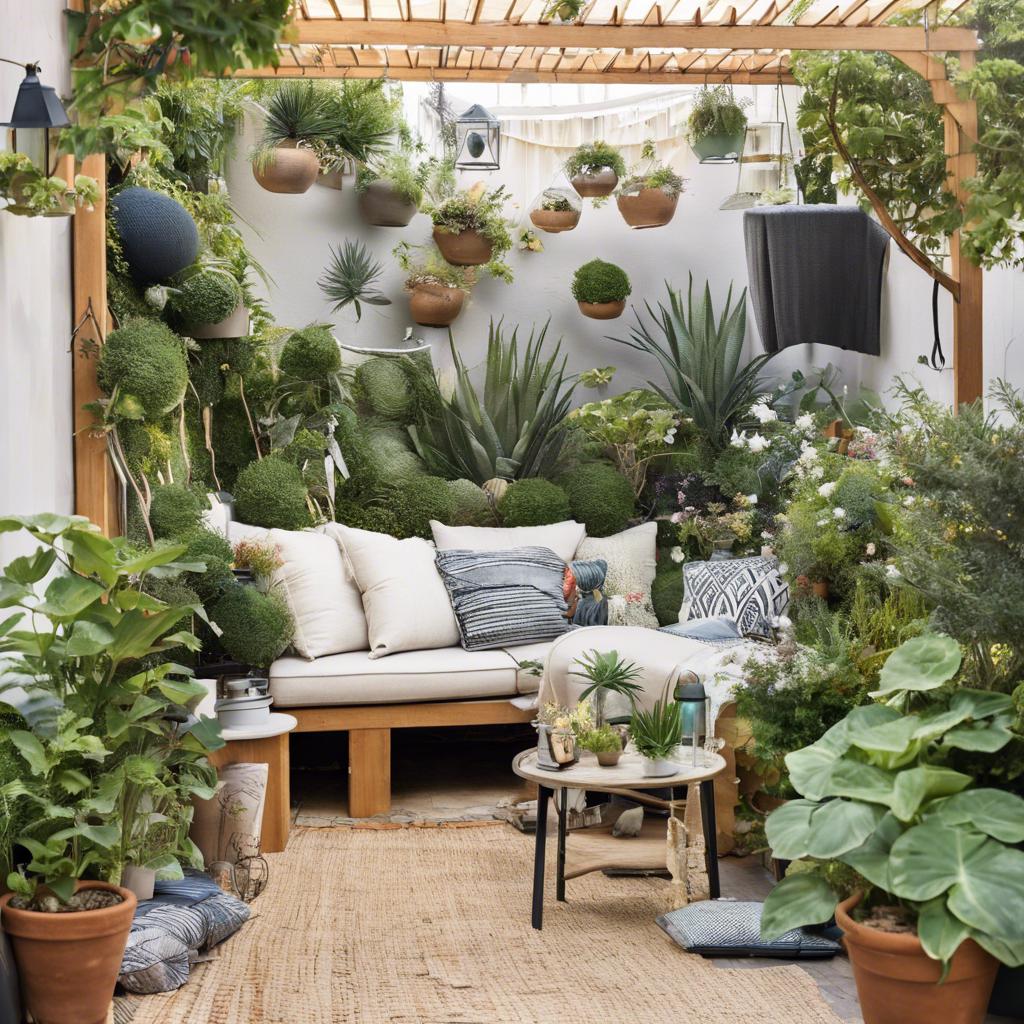
Creating a small garden oasis is a wonderful way to bring the beauty of nature into your space. With a little creativity and planning, you can transform even the tiniest of outdoor areas into a vibrant and lush garden retreat. To maintain your small garden with ease, consider the following tips:
-
- Choose the Right Plants: Opt for low-maintenance plants that thrive in your climate and require minimal care. Succulents, herbs, and ornamental grasses are great options for small gardens.
-
- Maximize Space: Utilize vertical gardening techniques such as trellises, hanging planters, and wall-mounted containers to make the most of your limited space.
-
- Implement Smart Irrigation: Install a drip irrigation system or use self-watering planters to ensure your garden gets the water it needs without wasting resources.
Additionally, regularly prune and deadhead your plants to promote healthy growth and prevent overcrowding. Keep an eye out for pests and diseases, and promptly address any issues to maintain the overall health of your garden. By dedicating a small amount of time each week to garden maintenance, you can enjoy a thriving and beautiful outdoor sanctuary year-round.
Showcasing Personal Touches for a Unique Design
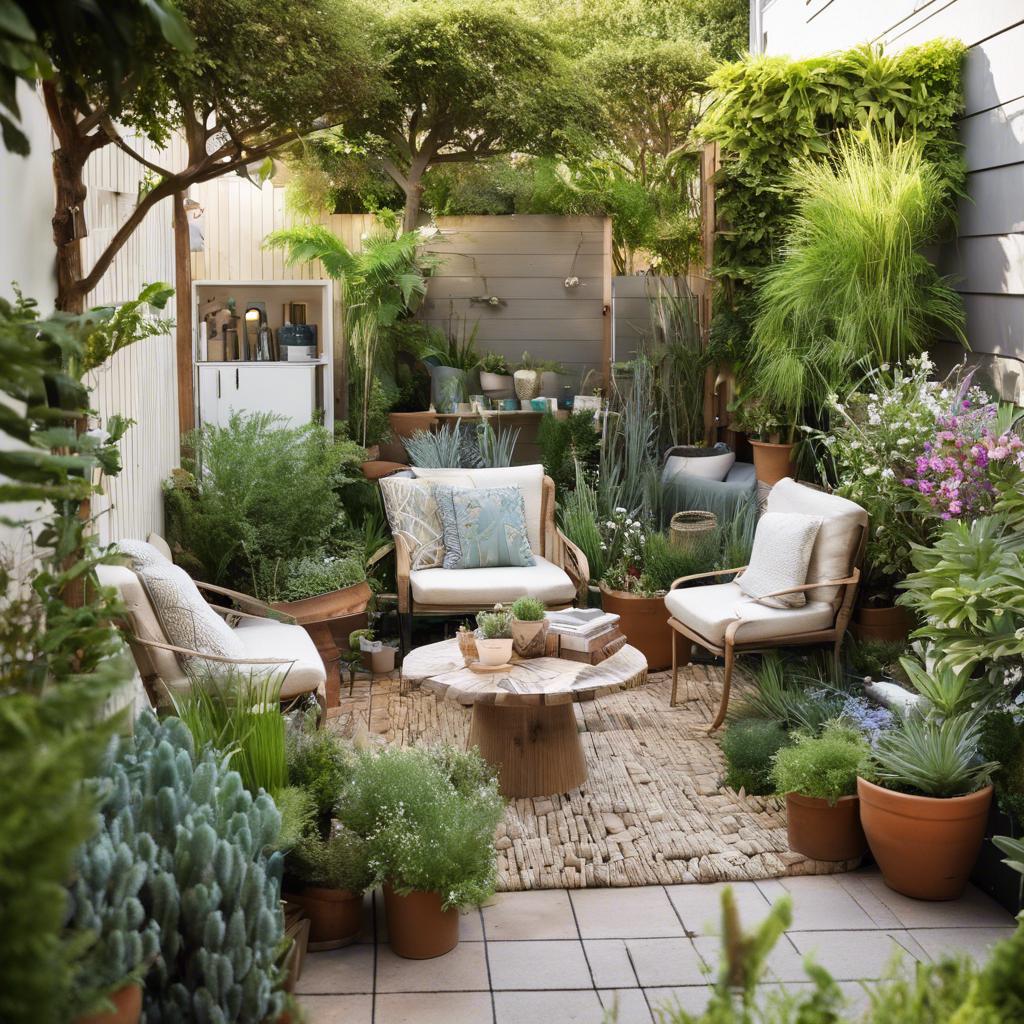
As you craft the perfect small garden design for your tiny oasis, don’t forget to add personal touches that will make it truly unique. One way to do this is by incorporating items that hold sentimental value to you. Whether it’s a vintage watering can passed down from your grandparents or a quirky garden gnome that makes you smile, these personal items can add character and charm to your outdoor space.
Another way to showcase your personal style is by incorporating DIY projects into your garden design. Get creative and make custom plant markers, hand-painted pots, or a homemade bird feeder. Not only will these DIY projects add a personal touch to your garden, but they will also give you a sense of pride and accomplishment every time you admire your handiwork.
Don’t be afraid to think outside the box when designing your small garden. Consider incorporating unconventional elements such as fairy lights, a mini herb garden in a repurposed palette, or a cozy reading nook with a hammock. These unexpected touches will make your tiny oasis feel like a hidden gem and create a space that is truly one-of-a-kind.
Q&A
Q: What are some key elements to consider when designing a small garden?
A: When designing a small garden, it’s important to prioritize space efficiency, choose the right plants for the size and lighting conditions, and incorporate creative solutions for storage and seating.
Q: How can you make a small garden feel more spacious and inviting?
A: To make a small garden feel more spacious, try using vertical space with trellises or hanging planters, creating different levels with raised beds or planters, and incorporating mirrors or reflective surfaces to add depth.
Q: What are some creative ideas for maximizing the use of a tiny garden space?
A: Some creative ideas for maximizing a tiny garden space include incorporating multi-functional furniture, creating a mini herb garden on a windowsill, using stackable planters or hanging baskets, and adding a small water feature like a tabletop fountain.
Q: How can lighting enhance the ambiance of a small garden?
A: Lighting can enhance the ambiance of a small garden by creating a cozy atmosphere at night, highlighting key features like plants or pathways, and adding a sense of depth and dimension to the space.
Q: What are some tips for maintaining a small garden design?
A: To maintain a small garden design, be sure to regularly prune and trim plants to keep them in check, monitor watering and fertilizing needs, and periodically rearrange or refresh the layout to prevent overcrowding or monotony.
